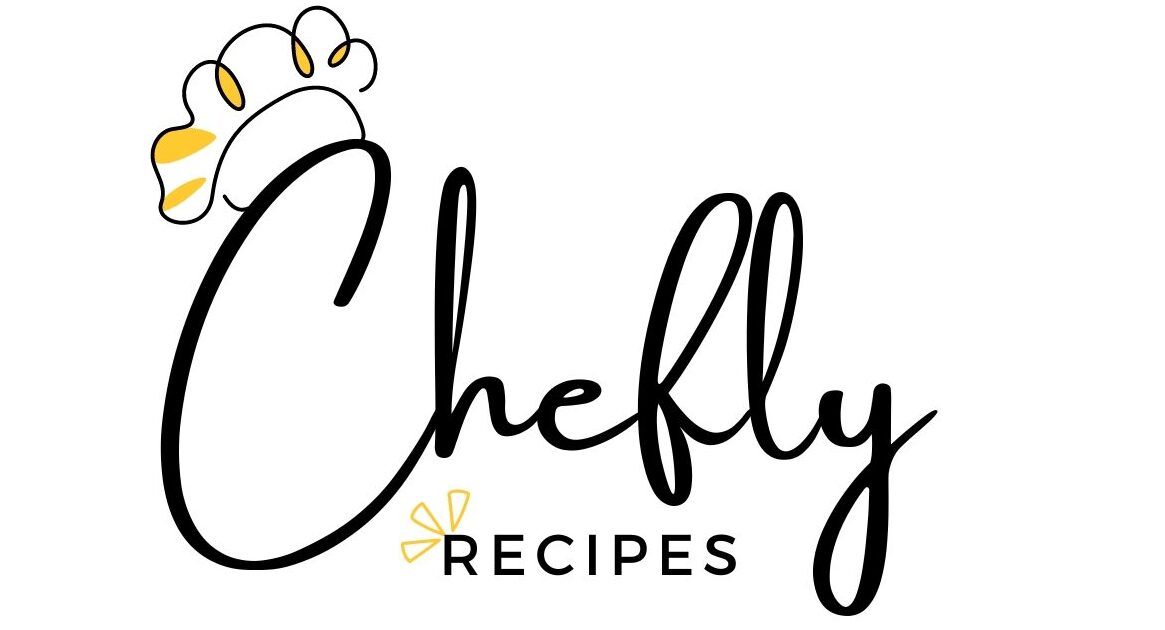Cookie Monster, the blue, googly-eyed character from Sesame Street, has been a beloved icon for generations. With his insatiable appetite for cookies and his humorous antics, he has captured the hearts of children and adults alike. But in recent times, a peculiar question has emerged: Is Cookie Monster halal?
This article dives deep into the subject, analyzing whether Cookie Monster himself, or more specifically, products inspired by him, comply with Islamic dietary laws. From understanding the character’s origins to exploring halal certification and ingredient analysis, we’ll uncover the truth behind this intriguing query. Whether you’re a parent, a dessert lover, or someone curious about halal food compliance, this guide will help you navigate the world of Cookie Monster-themed treats.
Table of Contents
Understanding ‘Cookie Monster’ in Popular Culture
Origins and Evolution of Cookie Monster
Is Cookie Monster Halal? Before we dive into whether Cookie Monster is halal, let’s first understand his origins. Created by Jim Henson in the late 1960s, Cookie Monster made his first appearance on Sesame Street in 1969. This beloved, cookie-obsessed character was designed to entertain children with his love for cookies, making them his signature treat. But when it comes to dietary concerns, many wonder, is Cookie Monster halal?
Over the decades, Cookie Monster has undergone a few changes. While he originally devoured any kind of cookie in sight, more recent versions of the character have portrayed him making healthier food choices. Some episodes even feature him eating fruits and vegetables, reflecting a growing push toward promoting healthy eating habits in children.
Cookie Monster’s Role and Characteristics
Cookie Monster is more than just a blue furry creature, he’s a symbol of childhood joy and humor. His exaggerated expressions, messy eating style, and famous catchphrases like “Me want cookie!” have made him a global sensation.
Despite his obsession with cookies, Cookie Monster is a fictional character, so his diet isn’t necessarily classified as halal or haram. However, the real question many ask is, “Is Cookie Monster halal?” While the character himself isn’t subject to dietary laws, the focus should be on Cookie Monster-themed products, such as cupcakes, ice creams, and desserts, that bear his name or image. For those following a halal diet, checking the ingredients and certification of these treats is essential.
The Concept of Halal in Dietary Practices
Definition of Halal and Haram
In Islam, dietary laws play a crucial role, guiding adherents on what is halal (permissible) and haram (forbidden). The term halal applies to all things lawful under Islamic teachings, particularly in food and drink. Conversely, haram refers to items explicitly prohibited by Islamic law. These classifications, derived from the Quran and Hadith, provide a clear framework for Muslims to uphold both spiritual and physical purity. Given these guidelines, many wonder, “Is Cookie Monster halal?”, especially when it comes to Cookie Monster-themed food products.
Common Ingredients Considered Haram
Understanding what constitutes haram is essential for determining if a product aligns with halal standards. Commonly prohibited ingredients include:
- Pork and its derivatives: Pork is explicitly forbidden in Islam, making any food containing pork or its by-products haram.
- Alcohol: Any form of intoxicant, including alcohol used in cooking or as an ingredient, is prohibited.
- Blood: Consumption of blood is forbidden, necessitating proper draining during animal slaughter.
- Improperly slaughtered animals: Meat from animals not slaughtered according to Islamic rites is considered haram.
For a product to be deemed halal, it must be free from these substances and processed in compliance with Islamic guidelines. This ensures that the food consumed maintains both spiritual sanctity and physical cleanliness.
Analyzing ‘Cookie Monster’ Products for Halal Compliance
Overview of ‘Cookie Monster’-Themed Foods
The popularity of the Cookie Monster character has inspired a variety of themed treats, ranging from cupcakes and cookies to ice creams. These products often feature blue coloring, cookie pieces, and playful designs reminiscent of the beloved character. While these desserts are visually appealing and delightful, it’s crucial to assess their ingredients to determine their halal status.
Ingredient Examination of ‘Cookie Monster’ Products
To answer the question, “Is Cookie Monster halal?”, one must scrutinize the components of these themed products. Potential concerns include:
- Gelatin: Commonly used in desserts for texture, gelatin is often derived from pork, rendering it haram. However, gelatin can also be sourced from beef or fish, which may be halal if processed accordingly.
- Food colorings: Some artificial colorings may use alcohol as a solvent or be derived from non-halal sources. It’s essential to verify the origin and processing of these colorings.
- Flavorings: Natural and artificial flavors might contain alcohol or other haram substances. Detailed ingredient lists or certifications can provide clarity.
- Emulsifiers and enzymes: These additives can be sourced from animals not slaughtered per Islamic law, making them haram.
Given these potential issues, consumers should diligently inspect product labels or seek out halal-certified versions of Cookie Monster-themed treats.
Case Study: Sugalight’s ‘Cookie Monster’ Ice Cream
Sugalight offers a ‘Cookie Monster’ pint that caters to health-conscious consumers by being sugar-free. More importantly, many wonder, “Is Cookie Monster halal?” The good news is that this product is halal-certified, ensuring it meets Islamic dietary standards. The ingredients include fresh dairy milk, black cookies, inulin, coconut oil, xylitol, skim milk powder, maltitol, olive oil, stabilizers and emulsifiers, vanilla extract, and sea salt. With the absence of haram components and official halal certification, this Cookie Monster-inspired treat is a great choice for those following halal dietary guidelines.
This example underscores the importance of seeking out halal-certified products or thoroughly vetting ingredient lists to ensure compliance with Islamic dietary laws. By doing so, consumers can enjoy delightful treats without compromising their religious beliefs.
Halal Certification and Its Importance
What is Halal Certification?
For Muslims, ensuring that food complies with Islamic dietary laws is essential. That’s where halal certification comes in. A halal-certified product means that it has been thoroughly inspected to confirm that it meets halal guidelines. This certification process evaluates everything, from the ingredients used to the manufacturing and processing methods, to ensure that the final product is free from haram substances.
When asking Is Cookie Monster halal?, it’s not about the character himself but whether Cookie Monster-themed foods are halal-certified. Many sweets and baked goods feature questionable ingredients like gelatin, emulsifiers, and artificial flavorings. If these products have halal certification, they can be safely consumed by Muslims without any concern.
Recognized Halal Certification Bodies
Different countries have their own organizations that certify food as halal. Some of the most well-known and trusted halal certification bodies include:
- JAKIM (Malaysia) – One of the most stringent halal authorities worldwide.
- IFANCA (USA) – Recognized in North America and globally for its thorough certification process.
- HMC (UK) – Ensures meat and other products meet strict halal standards.
- GIMDES (Turkey) – Certifies a range of halal food products and cosmetics.
- MUIS (Singapore) – Oversees halal certification in Southeast Asia.
A halal-certified logo from these organizations on a product guarantees that it has undergone proper inspection and is safe for Muslim consumers.
Importance of Halal Certification for Consumers
For Muslim consumers, halal certification provides peace of mind, ensuring that the food they eat aligns with their religious beliefs. However, even for non-Muslims, halal standards often signify higher-quality products, as they emphasize hygiene, ethical sourcing, and purity.
So, if you’re wondering, “Is Cookie Monster halal?”, especially when it comes to Cookie Monster-themed cupcakes, ice creams, or desserts, checking for halal certification is the best way to ensure it meets Islamic dietary requirements. When in doubt, consulting halal certification databases or reaching out to the manufacturer can help clarify any concerns.
How to Identify Halal ‘Cookie Monster’ Products
Reading Ingredient Labels Effectively
If you ever wonder, Is Cookie Monster halal?, the first step is to carefully examine the ingredient list on Cookie Monster-themed foods. Many desserts contain hidden haram components, making it crucial to understand food labels. Here’s what to watch out for:
- Gelatin – If it isn’t labeled halal, it’s likely derived from pork.
- Alcohol-based flavorings – Some vanilla and other extracts may contain alcohol.
- E-numbers – Certain food additives, like E120 (carmine) and E441 (gelatin), may be non-halal.
- Enzymes and emulsifiers – Check whether they come from animal sources.
To make things easier, opt for products explicitly labeled halal or those that carry a certification mark.
Recognizing Halal Certification Logos
When buying Cookie Monster-themed sweets, look for halal certification logos from trusted organizations like JAKIM, IFANCA, and HMC. These labels indicate that the product has been inspected and meets halal dietary requirements.
However, beware of misleading claims! Some products may claim to be halal without proper certification. Always verify by checking official certification databases or the manufacturer’s website.
Inquiring About Product Preparation Methods
Even if ingredients appear halal, cross-contamination can occur during preparation. Many bakeries and ice cream shops produce halal and non-halal products in the same facility. If a Cookie Monster-themed dessert is prepared on shared equipment with haram ingredients, it may not be suitable for Muslim consumers.
To ensure the food meets halal standards, don’t hesitate to ask vendors questions such as:
- Do you use separate utensils and equipment for halal and non-halal products?
- Is the vanilla extract alcohol-free?
- Are your food colorings halal-certified?
By being vigilant and asking the right questions, you can confidently enjoy delicious Cookie Monster-inspired treats while staying within halal dietary guidelines.
FAQs
Many people have questions about Cookie Monster and whether Cookie Monster-themed foods are halal. Here are some of the most commonly asked questions.
Is Cookie Monster a Vegetarian?
No, Cookie Monster is not a vegetarian. Although he is famous for eating cookies, his character is simply a fun, food-loving monster from Sesame Street. In reality, Sesame Street has promoted a balanced diet for kids, and Cookie Monster has been shown eating fruits, vegetables, and other healthy foods alongside his cookies.
What Ingredients Are Used in ‘Cookie Monster’ Products?
Cookie Monster-themed foods can include a variety of ingredients. Typically, they contain blue food coloring, cookies, chocolate, and cream. However, some may also have haram ingredients like gelatin, alcohol-based flavorings, or non-halal emulsifiers. Always check labels to verify if they meet halal standards.
Are ‘Nasty Cookies’ Halal?
Nasty Cookie is a well-known bakery offering chunky, loaded cookies. Whether their cookies are halal depends on the specific flavors and ingredients used. Some may contain non-halal additives, so it’s best to check for halal certification or inquire directly with the brand.
What Country Originated the Cookie Monster Character?
Cookie Monster was created in the United States as part of Sesame Street, a children’s educational television show that debuted in 1969. His character was designed to make learning fun while teaching kids about food, language, and social skills.
Conclusion
Summary of Key Points
To answer the question, Is Cookie Monster halal?, we need to look beyond the character and focus on Cookie Monster-themed foods. While the character himself has no dietary restrictions, many desserts inspired by him may contain haram ingredients. That’s why it’s essential to check labels, verify halal certification, and ask the right questions before consuming these treats.
Encouragement for Diligent Consumer Practices
As a consumer, staying informed about what you eat is key. When buying Cookie Monster-themed foods, look for halal-certified options, inspect ingredient lists carefully, and don’t hesitate to reach out to manufacturers for clarification.
The demand for halal-friendly desserts is growing, and many brands are now offering halal-certified versions of popular treats. By making mindful choices, you can enjoy your favorite sweets without compromising on your beliefs.

